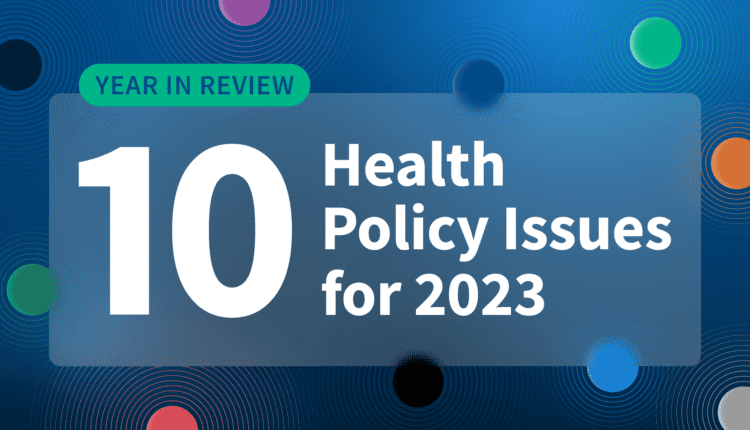
Top 10 Health Policy Challenges for 2023: Annual Review
TL/DR –
The KFF report identifies key issues such as rising health care costs, with family health insurance premiums increasing by 7% to nearly $24,000, and over 100 million American adults struggling with medical bills. Access to abortion and contraception remains a significant concern for voters, while Medicaid enrollment is expected to decrease by 8.6% in fiscal year 2024. Lastly, misinformation continues to spread across health issues, with a KFF study finding that at least four-in-10 people have heard each of ten specific false claims, but few actually believe them.
Recap of KFF’s 10 Key Health Issues of the Year
The past year saw a significant burden of health care costs on Americans, with family health insurance premiums for employer coverage rising by 7% to nearly $24,000. Many found these costs unaffordable, particularly those working for small employers. Despite the buzz around anti-obesity drugs, issues of coverage, cost, and access persist unclear. Moreover, 41% of American adults struggle with medical bills they can’t pay.
The contentious issues of abortion and contraception access remained central issues for voters following Roe v. Wade’s overturning. We monitored state abortion policies and legal battles, and also assessed contraception rights nationwide.
Meanwhile, Medicaid enrollment began to decline, with a predicted 8.6% drop in 2024 as pandemic-related enrollment protections unwind survey. Conversely, North Carolina expanded their Medicaid programs to accommodate low-income adults in December, joining 39 other states and the District of Columbia.
On the Medicare front, the commencement of drug price negotiations, authorized by the Inflation Reduction Act, sparked significant industry debate.
In terms of the pandemic, our COVID-19 Vaccine Monitor showed a drop in concern about infection and a decreased interest in boosters among most Americans, despite confusion about booster location and payment post the public health emergency declaration’s end in May.
Furthermore, misinformation remained prevalent across health issues, with at least 40% of people reporting having heard various false health claimsKFF found.
Lastly, calls for advancing health equity continued, with new research documenting discriminatory practices faced by several racial and ethnic groups during health care visits.
As we headed towards year-end, former President Trump and Gov. Ron DeSantis (R-FL) expressed interests in altering the Affordable Care Act (ACA), despite public polling showing broad support for the ACA and record enrollment in the ACA marketplace this year.
—
Read More Health & Wellness News ; US News
